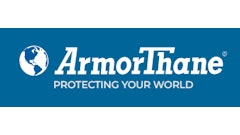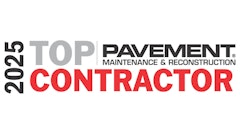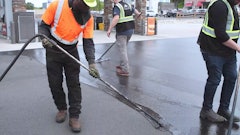Homeowners are hanging on to their money and paying off debt, property managers are on tighter and tighter budgets as vacancy rates rise, and your business depends on getting prospects in either or both groups to hire you so you can maintain or grow your company, keep your employees paid, and meet all your financial obligations.
To help, Pavement Maintenance & Reconstruction contacted a number of experts to learn some of the steps you can take to get the work you need.
Rely on your sales files. Contractors often have files that go back many years, and Brad Humphrey, Pinnacle Development Group, says contractors frequently "forget" to contact these past customers as the contractor emphasizes new blood. "So look at customers you did work for maybe five or 10 years ago and that you haven't done work for since. Find out if they're still in business, confirm the primary contact, and create a new list for your salespeople to work."
Guy Gruenberg, Grow Consulting, adds that simply by updating your customer files you will end up with bid opportunities. "Go back 10 years in your files and contact every single customer in your list," Gruenberg says. "Tell them you're just updating your records, and let them know what your company does now. Obtain the updated information, including contact name and e-mail address, and I'll bet that if you make 60 calls a day you'll get four to six people who want you to come out and check out a problem."
And, Gruenberg says, don't forget to send a follow-up note to that new e-mail address.
Get the owner out with customers. Owners make an impact, it's as simple as that, so in tough economic times if the owner of the company can make a solid impression with a prospect, why not get the owner out there making sales calls, giving presentations, and glad handing?
Subcontract. You can subcontract work to other contractors and you can be a subcontractor for other contractors - and once you start, work often flows both directions. "Subcontracting provides a give and take," says Nick Howell, T&N Asphalt Services and a member of the Pavement Advisory Board. "It can even keep you busy enough not to have to market."
Howell adds contractors shouldn't be afraid to give subcontracting a try. "When I first started I felt I had to do every bit of everything, but I learned that subcontracting can make you more efficient and in the long run more profitable because you can be more efficient."
Bid on everything. "If a property manager calls I bid everything he needs, whether we perform that work or not," says Bob Paradise, Paradise Asphalt Maintenance and a Pavement Advisory Board member. "I tell him up front that we don't do everything - we don't do large overlays, for example - but I bid it and sub it out to some paving contractors who do good work, and they in turn sub work to me. They don't want to crackseal, for example, and we don't want to do large overlays, so it works."
Diversify. The financial barrier to entry into many aspects of pavement maintenance is low, so diversification is open to almost all contractors. Humphrey cautions, however, that contractors should know what they want to do and why they are adding a service to their business. "You need to have a vision," he says. "If you don't you're not going to do a good job at it, and if you're adding a service you need to add it in a quality way."
But first determine if your market needs the service you want to add. Humphrey stresses that it's important the new service enhance and not in any way damage your reputation, so a contractor adding striping, for example, should research and study to make sure she knows how to do it. Other options are to hire an expert striper or establish a subcontracting relationship with a striper.
Consider vanity phone numbers. These "800" numbers (such as 1-800-PAVEMENT and 1-800-ASPHALT) follow a formula tested successfully in a variety of other industries where a contractor leases the "800" number for one or more area codes, then people calling the number within that area code are routed to the contractor's office.
"These numbers provide a competitive advantage no one else can have because it's a number no one else can have or buy," says Mike Musto, owner of 1-800-PAVEMENT (and 1-800-SEALCOAT, 1-800-BLACKTOP, 1-800-SWEEPING, 1-888-PAVEMENT). "They are easy to remember, and if a customer needs work now he'll call you; if he needs work in a month they'll remember your number."
Musto says the "800" numbers are effective for both residential and commercial work, but are even more effective on commercial work. "A lot of times people need three bids and because you have an "800" number they'll remember, you'll get the opportunity to bid a job you might otherwise not have had a chance for," Musto says. "Property managers handle multiple properties, and they don't want to deal with a different contractor for each property; they want to deal with one property manager for all the properties, and that's a competitive advantage for you."
Ask for more work ? early. Many property managers know of work in the pipeline and they know of work they plan or hope to do on other properties. Humphrey says that it's important and effective to ask a current customer when she sees a new project coming up, perhaps when you bring her the invoice or drop by to make sure she's happy with the job you just finished. Ask what you can do to get involved right now in the next project, whether in helping draw up bid specs, planning, or just talking through the job - anything to stay a step ahead of the competition.
Seek out adjacent business. Jared Everett, Everett Professional Services, says contractors can see an immediate influx of work by knocking on the door - commercial or residential - next to where you already have a job. "People love to save money, and it makes sense to them that there would be a savings if the crew has already traveled and mobilized to a location," he says.
So when you have a job scheduled for a particular area have your staff make visits to adjacent properties and inform them and ask to provide an estimate. Emphasize they could "save money" for work done at the same time. "Even if you do not like giving discounts, adjust your price accordingly and highlight the discount," he says.
Bid fairly. Musto says that when property managers' budgets are being slashed contractors tend to try to be the lowest bidder on every job. But he doesn't agree with that approach because contractors end up doing too much work for too little profit. "You don't have to be the lowest bid but you do have to be fair priced," Musto says. "And you always have to do quality work."
Host "lunch and learns." Humphrey says this is an especially effective marketing approach to property managers. He says the key is to bring in prospects and current customers at the same time and strategically place them around the table. "Mix up prospects with regular customers and your customers become salespeople for you," Humphrey says.
He adds you don't have to "market" your company, just provide lunch and bring in an expert to discuss one aspect of pavement maintenance of interest to all attendees. The entire event should be brief, perhaps 11:30 a.m. to 1:00 p.m.
Gruenberg adds that these events are not costly, are easy to set up, and can be held regularly without too much trouble. He cautions that the lunch and learn needs to come off as a professional presentation, so use and rehearse a nice PowerPoint presentation.
Target your direct-mail marketing. Paradise says most contractors send out mailings that are too large and unfocused. "If I send out 1,000 pieces and 60 respond, that's 60 phone calls and requests for bids and you can run yourself into the ground doing the bidding correctly," he says. He suggests targeting one type of prospect in a specific area - churches in the northeast area, for example. "You might only get 10 responses but you have a better chance of keeping up with calls that come back and you can do a quality bid that way."
Target "good" customers. Musto says U.S. Pavement, his contracting business, is "putting blinders on this year" and looking primarily at the good customers. "We're pursuing people who are going to give us profitable work who want to do business with us," he says. "We're looking at people managing multiple properties, people who don't necessarily go for the low bid, and who prefer to do business with one contractor. That's not to say we're not going to pursue other work, or do other work but the focus will be on the more profitable work."
Offer free "touch ups." Gruenberg says some contractors can do unrequested touch-up work for previous customers. Striping contractors, for example, can touch up worn areas of paint such as handicap stencils. Take a photo and send it with a note to the customer, letting her know you're sprucing up her parking lot as part of your service.
Target homeowners. Musto says that U.S. Pavement Inc., targets residential customers through Valpak and Super Coup direct-mail pieces. "They're pretty inexpensive but they reach a lot of people," Musto says. "You have to do it multiple times, though. You can't do it just once and expect results."
Do something. Humphrey says that whatever you do for your business it's important to do something. He says a poor economy is not the time to stop marketing, and it's not the time to stop providing outstanding customer service. "In fact contractors should think about doubling up on their customer service efforts with current customers. If you're not giving out small gifts at the end of a job, consider that, or something like that, especially for customers with repeat potential."
To learn about the 3 websites every pavement maintenance contractor needs to know read "Tips for Getting Work in Today's Economy" on the Pavement website.





















